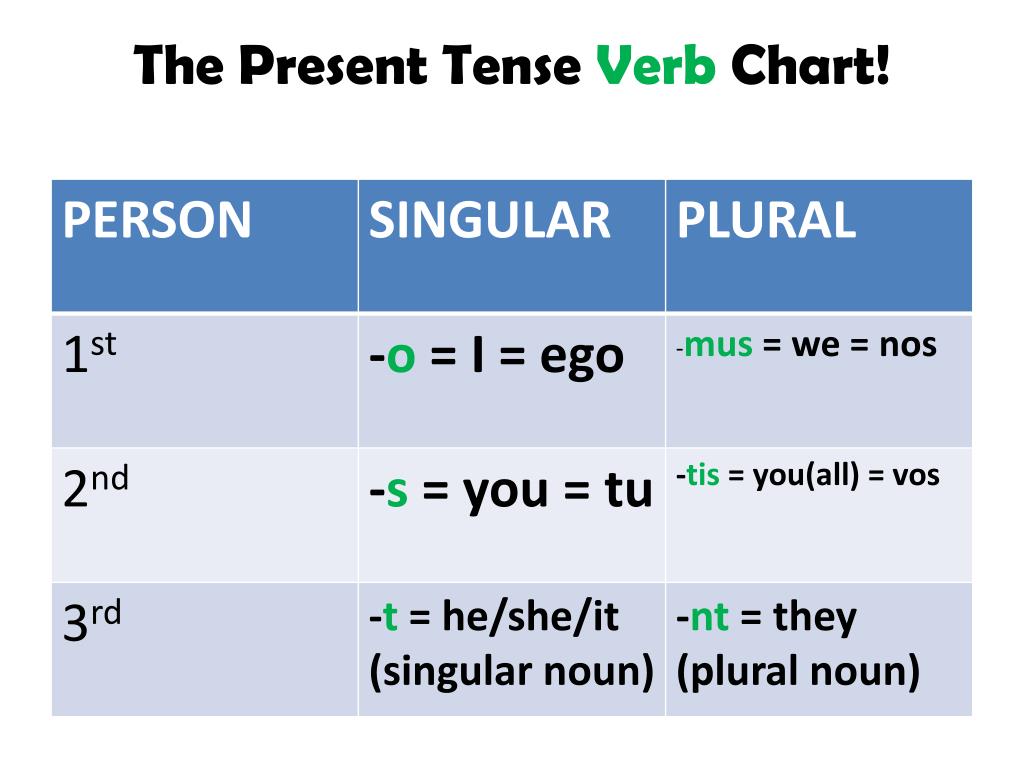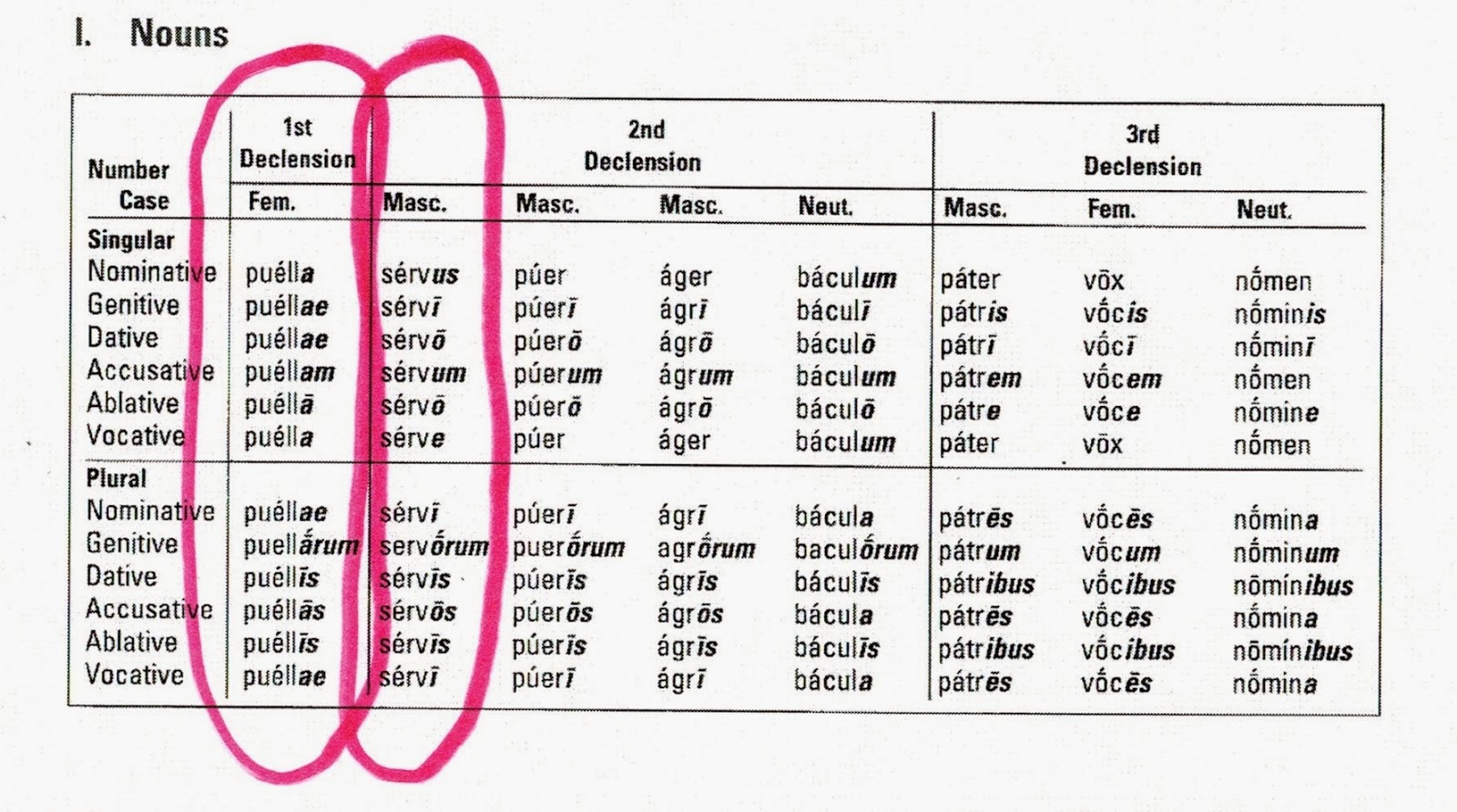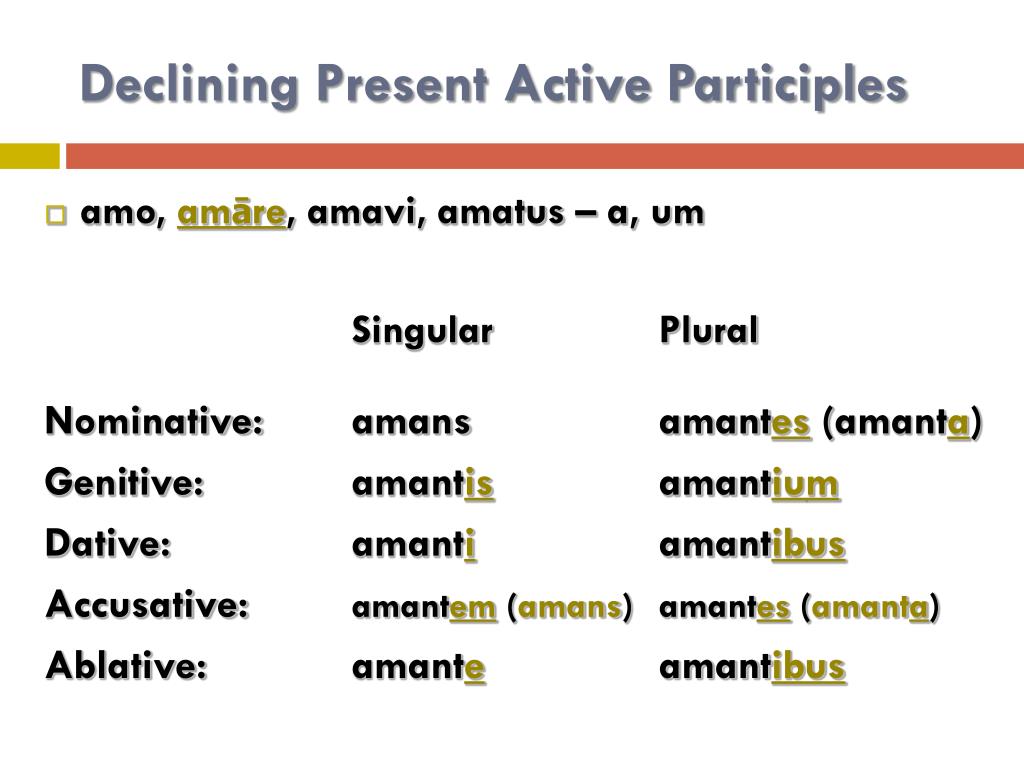
This is the nominative singular case, used to name what you are talking about in a sentence. The association of genders and declensions is accidental. The declension of a noun is determined by the spelling of the word, usually the final vowel of the stem, not its gender or meaning.

As the cases change, the radius declines from a vertical position to a horizontal one, so the process is called declension. The word "case" itself comes from casus, -us or "falling" (fourth declension). Greek geometers thought of the cases of nouns as radii in a circle, with the "independent" nominative and vocative cases a vertical radius, casus recti, with the other cases inclined more and more in the first quadrant, the casus obliqui or dependent cases, that had to lean on something. Subjecting a noun to inflection is called declension. All these words are connected by undergoing the same inflections. There are also pronouns, which merely point out without describing, such as ego (I) or tu (thou). The classification is not exclusive, and one word can be either. The two big classes of nouns are the noun-substantives (usually called simply nouns) that describe a thing, and noun-adjectives (usually called simply adjectives) that describe qualities of things. Each case corresponds to a different role of the word in a sentence, and is very important. Nouns, therefore, are much less complicated than verbs. The endings of nouns show number (singular or plural), gender (masculine, feminine, or neuter), and case (nominative, genitive, dative, accusative, or ablative).

The nominative singular of these adjectives is also often marked for gender in various ways.Ī small class of adjectives follows the "pronomial declension", described below.The phrase in the last lesson says: "Now you are demanding water from pumice," or "blood from a turnip" in the modern vernacular.

The other class for adjectives (called the "third declension") is similar to the third class for nouns, with the important difference that nearly all these adjectives form the ablative singular in -i, not in -e. Neuter adjectives of this class follow the pattern for o class neuter nouns. The first (called the "first and second declension") combines the a and o declensions of nouns, with the a endings added when the adjective is feminine, and the o forms for masculines.
#ACCUSATIVE SINGULAR LATIN ENDINGS FULL#
This declension class is the last to develop in Latin the only nouns that have the full declension are dies and fides.Īdjectives are divided into two declension classes. Finally, some consonantal nouns have the nominative singular ending "-s" (like rex - king, which originally was regs). Of these, some use the raw stem instead (as with sol - sun), and some have a special contracted form (like natio - people, tribe). Some nouns of this class don't have a particular ending for nominative singular. This class comprises nouns whose stem ends in a consonant.

Nouns of this class are divided into two subcategories according to the ending of their stems. Greek words ending in -eus are declined like regular nouns ending in -us, with the single exception that the vocative singular is formed by appending -u to the "stem" (as in Orpheus - Orpheu) These are: gener ( son-in-law), socer ( father-in-law), puer ( boy), vesper ( evening) and liberi ( children - only occurs in plural forms). There are however some words, where the e belongs to the stem proper and can't be omitted. Note that the e in the nominative singular form is just an insertion to ease pronunciation and is omitted in all other forms.


 0 kommentar(er)
0 kommentar(er)
